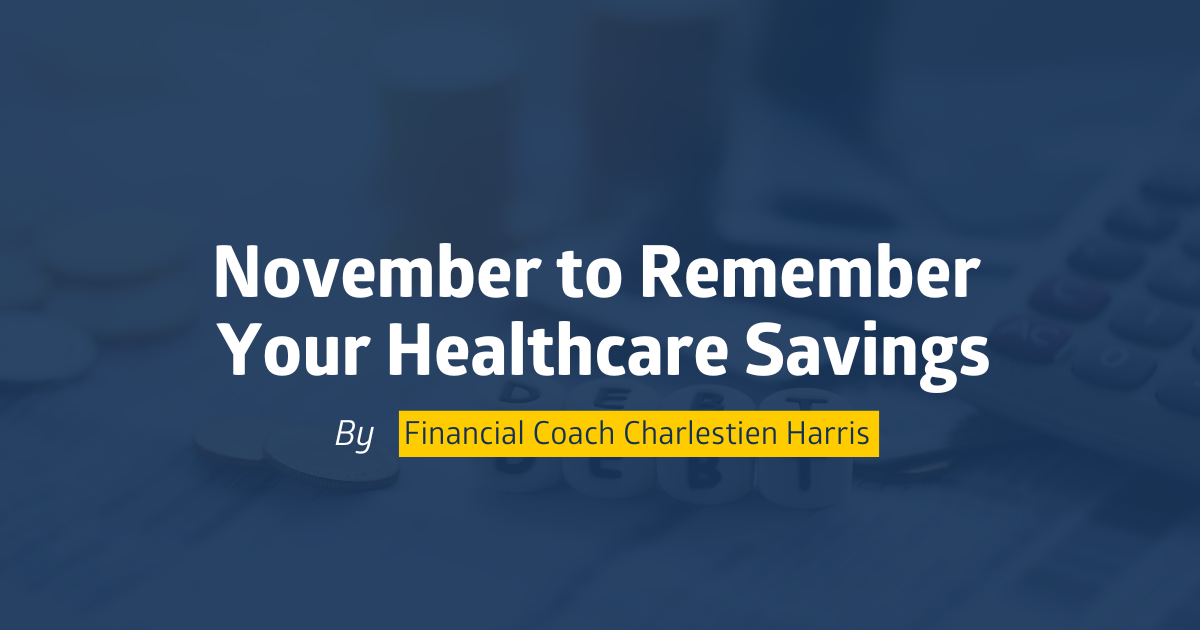By Charlestien Harris
November signals that the end of the year is on the horizon, and the current year is winding down fast! We probably can think of a lot of things on a to-do list, but spending available medical dollars is not one that may come readily to your mind. A Flexible Spending Account (FSA) is an employee benefit that allows you to set aside pre-tax money to pay for certain out-of-pocket expenses. If you still have medical dollars in your healthcare flexible spending account, you should put this on your financial to-do list: start spending it down. Although many companies now offer a grace period into next year, you’ll forfeit any money you haven’t spent once that period expires. Here are some suggestions on how you can take advantage of those set-aside medical “dollars.”
- Know the difference between an FSA and an HSA account. As I stated above, an FSA is an employee benefit that allows you to set aside pre-tax money to pay for certain out-of-pocket expenses. An HSA is an employee benefit that allows you to open a savings account that lets you set aside money to pay for qualified medical expenses. Only people who have a qualified high-deductible health plan, or HDHP, can select an HSA. Unlike the FSA, the HSA funds can be rolled over into the coming year.
- Check the balance of your Flexible Spending Account. After all that pre-tax money was set aside from the beginning to cover medical costs, if it is a benefit your employer offers, you should be able to check with your human resources benefit officer to get the details about your account. You might questions such as: how much have I accumulated, when is the deadline before my money is forfeited, what can I spend it on, or how do I access the funds?
- Make an appointment with your physician. Take the opportunity to make doctor’s appointments that you’ve been putting off or schedule a flu shot if you haven’t had one yet. November is the slowest month of the year for doctors, according to Zocdoc, a popular website that helps people find doctors and make medical appointments online. So, you should be able to set up a convenient appointment with a reasonable waiting time.
- Stock up on medicines and qualifying medical items. If you don’t need to visit the doctor or dentist again this year, it may be time to stock up the medicine cabinet! Just know some over-the-counter drugs or medical devices may still require a doctor’s prescription to be FSA eligible. Check with your physician for more information.
- What is a health reimbursement account (HRA)? I am glad you asked! It is a group health plan funded by an employer that reimburses employees for qualified medical expenses. HRAs are sometimes called Health Reimbursement Accounts. It might be worth noting that an HRA may be an alternative to consider as well when making your decision about what type of account you need to cover your medical costs. An HRA is an account designed to pay for medical expenses you incur that your standard health insurance plan does not cover. An annual allowance on spending from the account is established by your employer, which is then used to reimburse you for eligible out-of-pocket medical expenses after they happen. If you don’t use the allotted HRA funds within the defined calendar year, they won’t carry over into the following year. In fairness, though, HRAs are funded solely by your employer; you’re unable to contribute as with an HSA or FSA.
There is no precise “right” answer because all three accounts have benefits that can make managing your out-of-pocket medical expenses easier throughout the year. You need to consider all of your options and weigh the benefits of each. But one thing to consider when choosing either account option is to make sure the option you choose best fits your medical needs.
For more information on this and other financial topics, you can email me at Charlestien.Harris@banksouthern.com or call me at 662-624-5776.
Until next week – stay financially fit!
